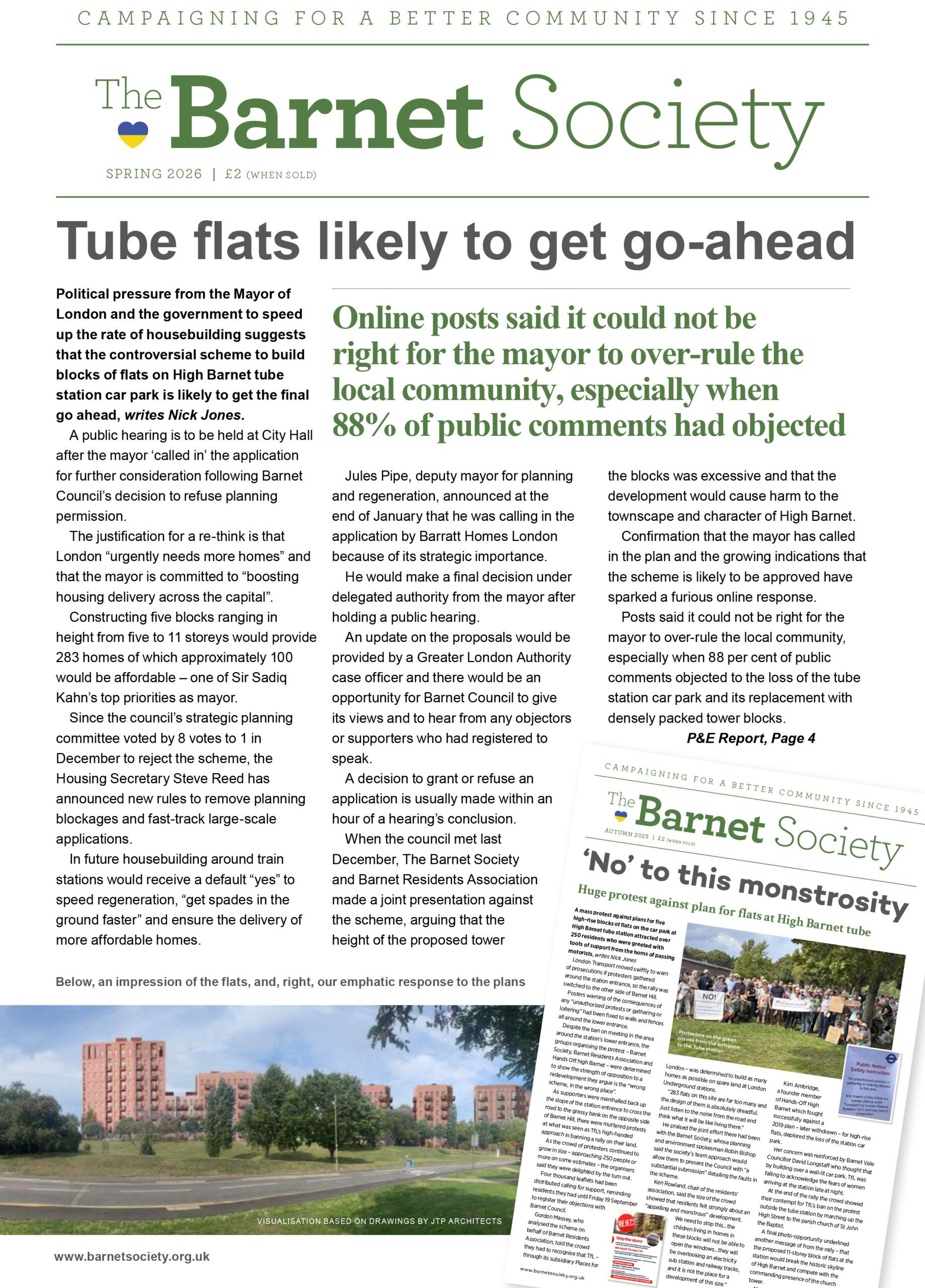Sad farewells with house building to start soon on farmland at Whalebones, off Wood Street, the last countryside between Arkley and High Barnet
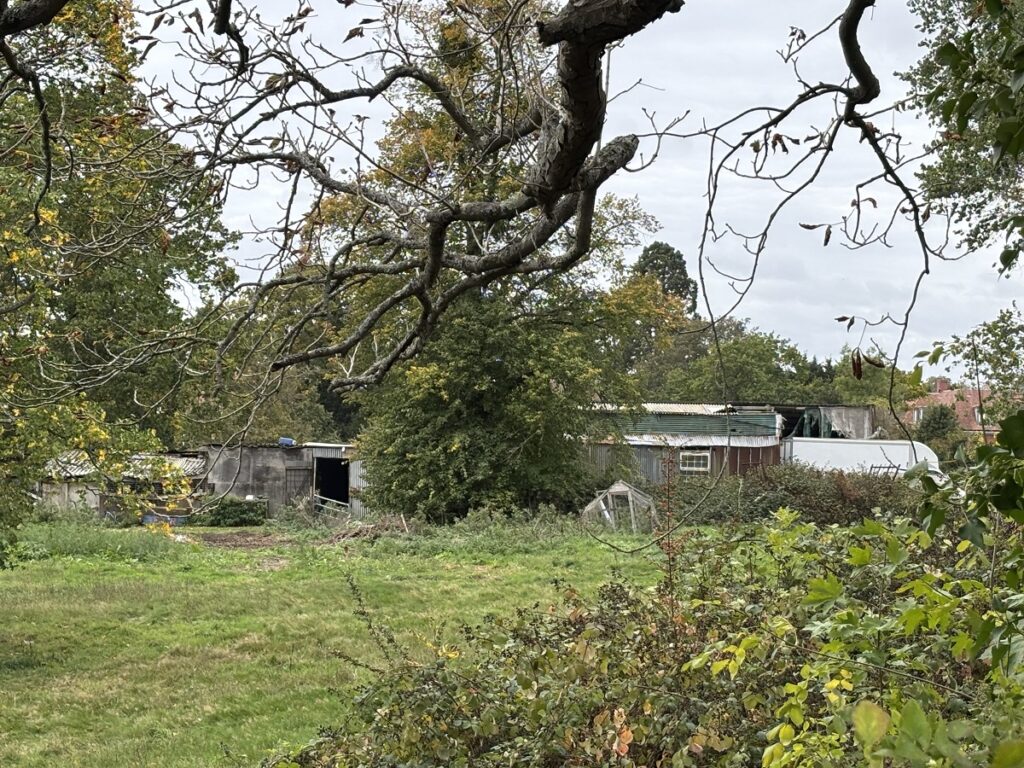
Demolition and clearance of the Whalebones smallholding and fields off Wood Street, High Barnet, has moved a step closer with developers having completed the purchase of the site for the construction of an estate of 115 new homes.
Housebuilders Hill Residential of Waltham Abbey and the Gwyneth Cowing Will Trust were jointly granted planning permission last year to develop farmland which adjoins Whalebones House, former home of the Cowing family.
With ownership having been transferred from the Cowing trustees, the handover has required the relocation of two long-standing tenants of Whalebones – the Barnet Guild of Artists and the Barnet and District Beekeepers’ Association.
A replacement studio for the artists’ guild is to be provided in a new community building to be constructed in Wellhouse Lane but the beekeepers’ association, which has been based at Whalebones for the last 60 years, has moved to a temporary site at a farm in Arkley.
Trustees for the late Miss Gwyneth Cowing, granddaughter of the founder of the Barnet Press, who died in 1987, first applied ten years ago for planning permission to build houses on fields at Whalebones,
A protracted campaign to save a significant wildlife habitat and the last remaining farmland between Arkley and High Barnet ended in October last year when the Mayor of London gave the final go ahead after Barnet Council had voted narrowly in favour of the scheme.
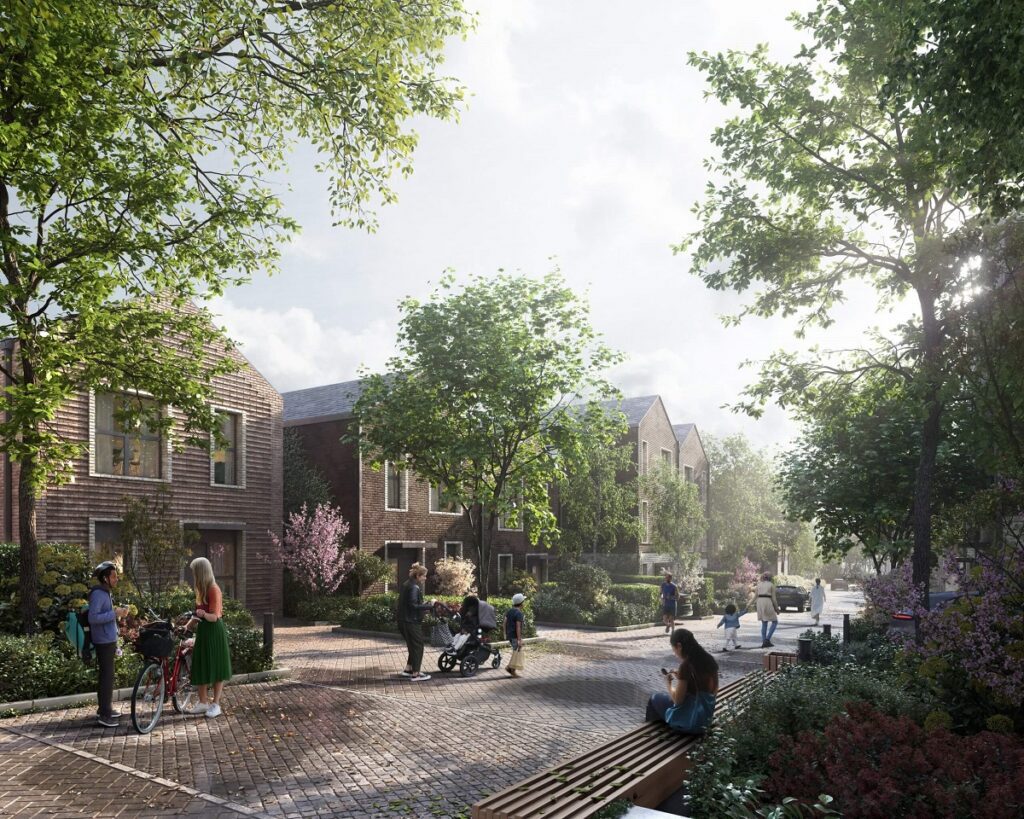
Most of the new houses – see image above from the Hill Group – will be built in the largest of the fields which is opposite the Arkley public house, and which is between the new Elmbank development and the woods around the now privately owned Whalebones House.
In an interview for Built Environment News, The Hill Group’s founder and group chief executive, Andy Hill, confirmed that the purchase of the Whalebones farmland had been completed.
He reiterated previous undertakings that half the site will be retained as “publicly accessible open space”.
“Whalebones Park is a site of outstanding beauty, and we are proud to be entrusted with its future.
“Our plans respect the heritage of the Grade II listed Whalebones House and the character of Barnet, while delivering a sustainable new neighbourhood.”
Space will be provided close to Well Cottage for a small holding for an agricultural tenant. The former tenant farmer at Whalebones, Peter Mason, who had been there since the 1960s and who had once reared cattle and horses at Whalebones, died last year.
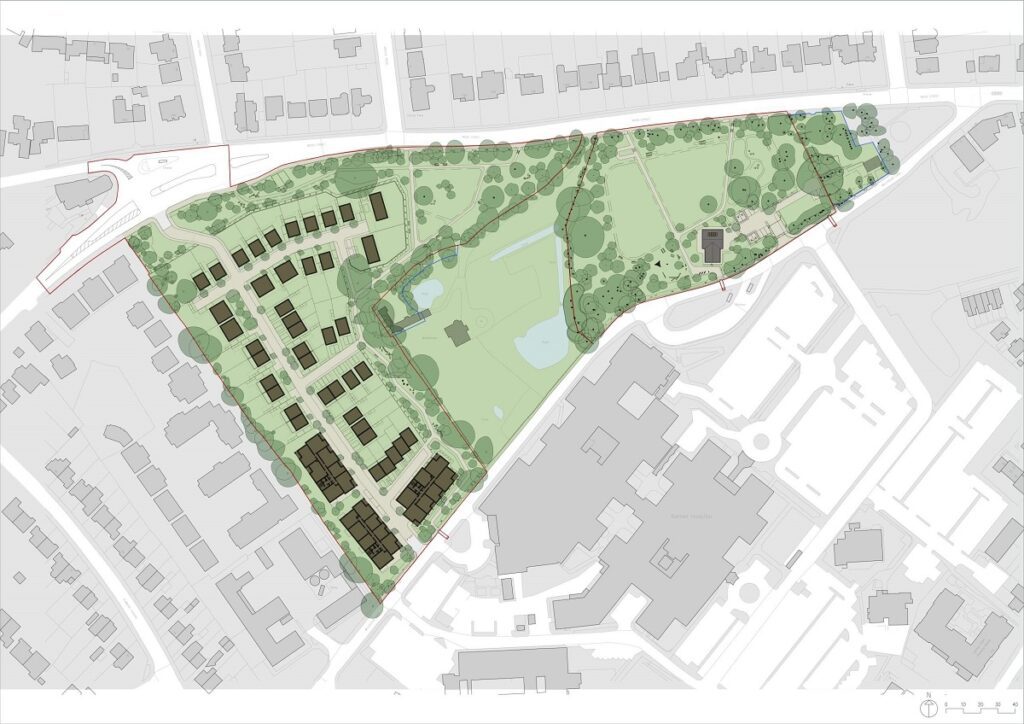
Planning approval has been given for 115 houses and apartments in buildings ranging from two to five storeys in height.
“Spacious, modern family homes” would be available for private sale and affordable homes would be provided in partnership with the affordable housing charity Sovereign Network Group.
SNG’s regional managing director Matthew Bird told BE News that its partnership in the development of Whalebones Park would demonstrate how affordable homes can be integrated into high quality sustainable development.
“Our 54 homes at Whalebones will provide much-needed opportunities for local people to access affordable rent and shared ownership in Barnet, supported by the wider benefits of new open space and community facilities.”
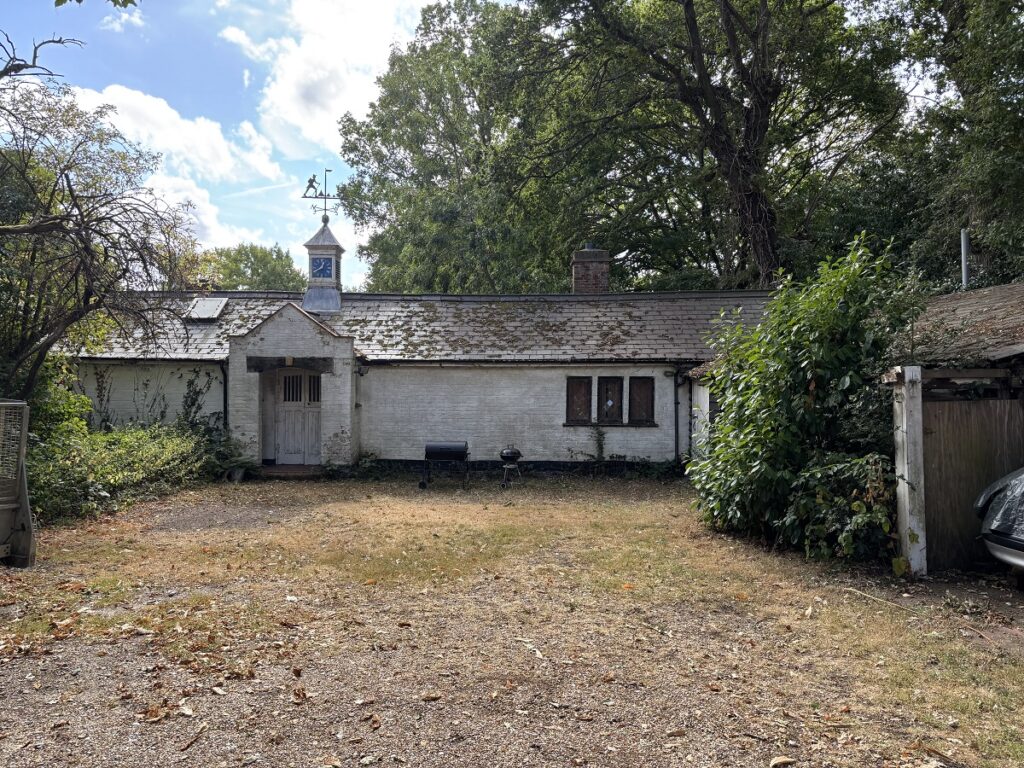
Alongside the purchase of the farmland by The Hill Group, the former stable block has also changed hands and has been acquired by the owners of Whalebones House.
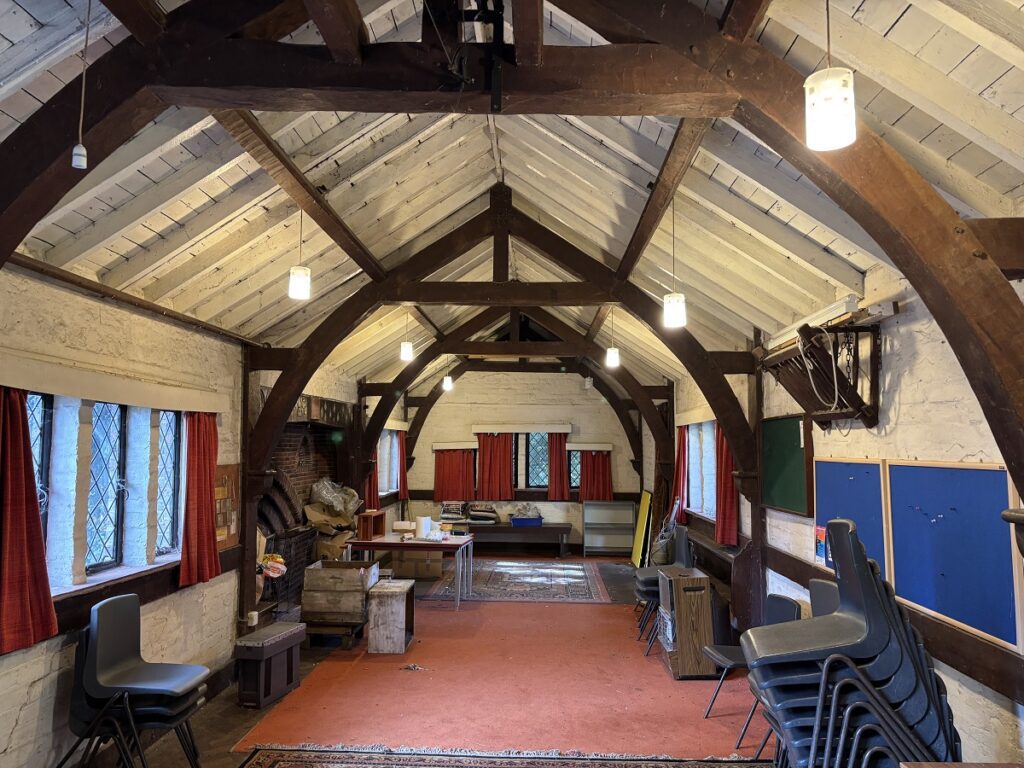
In recent days there have been some emotional farewells because over the decades the stable block, with its much-loved ornate and welcoming interior, had been home not only for the beekeepers but also for groups of Barnet Girl Guides and Brownies.
Miss Cowing’s generosity in providing a meeting place for local organisations – and paying for the construction of the timber-framed artists’ studio – left a legacy of philanthropy which the trustees of the estate said they had been anxious to preserve and respect.
Unlike the Guild of Artists which is signing a lease for use of a new community building in Wellhouse Lane, the beekeepers’ association decided it was not in a position to secure charitable status and take on added responsibilities.
Instead, the beekeepers have found temporary storage place for their equipment at an apiary on a farm in Arkley but will miss the use of the stable block for meetings, lectures, training courses, honey extraction and storage.
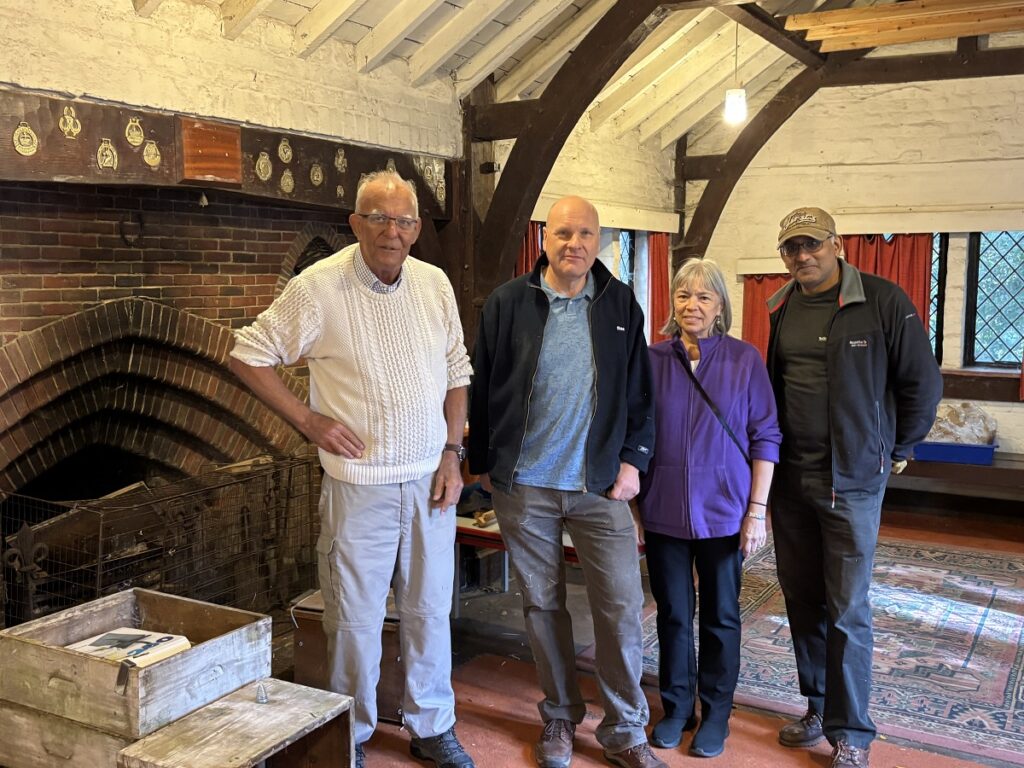
Moving out was a sad moment for long serving members of the association who gathered for a final group photo in a room which, for them, held so many memories – from left to right, president Geoffrye Hood, apiary manager Wilf Wood, association secretary Ann Songhurst, and Shri Kam.
The association, which currently has 107 members, has apiaries at various sites around High Barnet including Cat Hill, Arkley, and also Mill Hill.
Four hives of bees kept at Whalebones were moved from the site earlier this year.
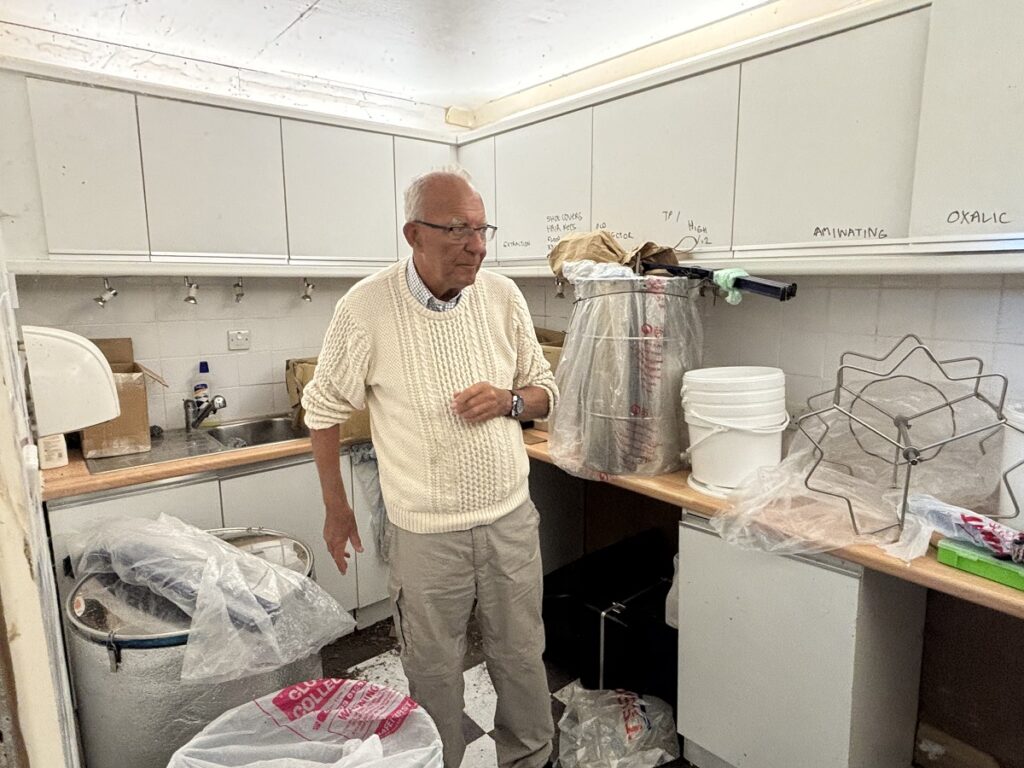
One of the greatest disappointments for the association will be the loss of a purpose-built facility for honey extraction which was fitted out with the latest equipment with help of a grant from the Millennium Commission which distributed funds to mark the turn of the millennium.
Geoffrey Hood said their facilities had been of great importance in the association’s education programme and every year since 2013 he had helped to train ten to 15 newcomers to beekeeping.
“We tend to start new beekeepers off with a hive at one of our apiaries and then they usually find their own sites.”
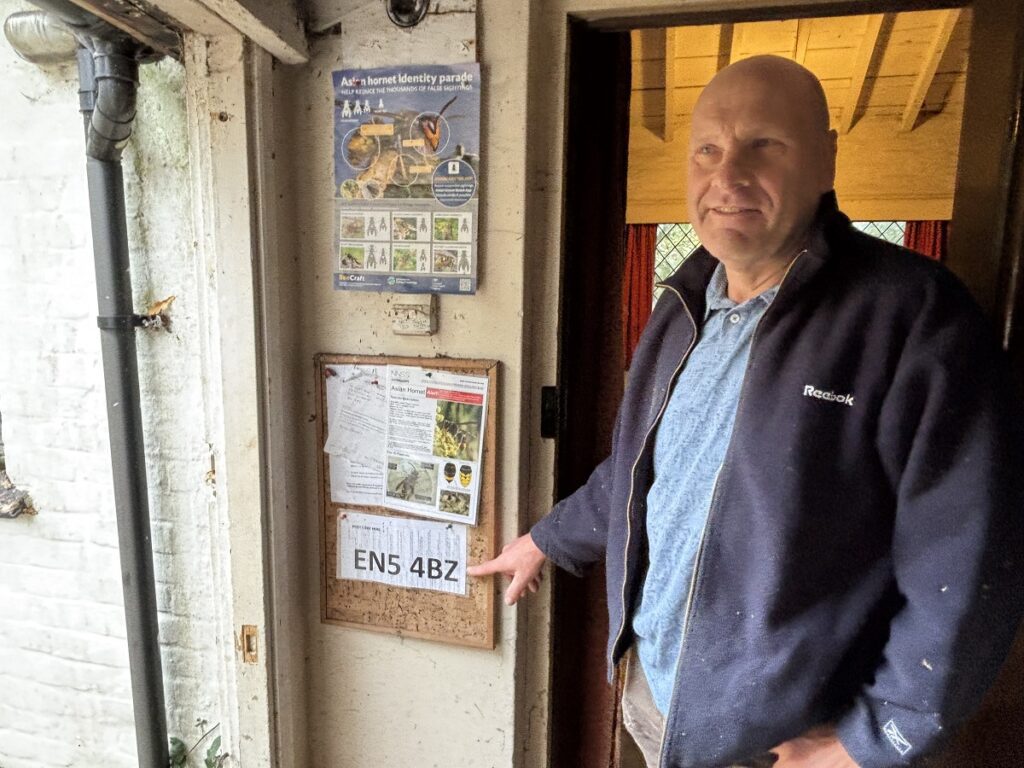
The Barnet and District Beekeepers’ Association had its very own postcode. Wilf Wood said a former president Rodger Hedgecoe arranged with the Post Office that letters should be addressed to EN5 4BZ.
Tags: #Barnet Council #Development #High Barnet #People And Personalities #Planning

